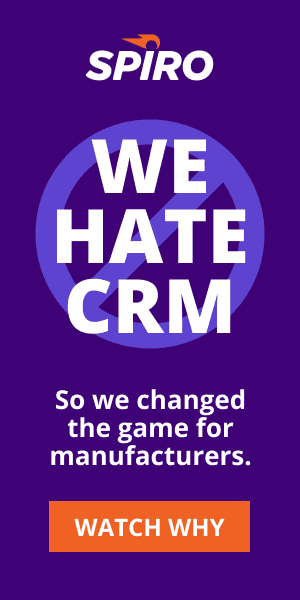7 Red Flags to Look for Before Accepting a Sales Role
Salespeople are rarely at a loss for job opportunities. There are currently 700k open sales roles in the US, making it one of the largest sectors of the workforce at approximately 15m salespeople (according to the Bureau of Labor Statistics). This is partly why there’s so much turnover in sales; a rep who sees a better opportunity usually isn’t afraid to make the leap since they’re not worried about being left out in the cold.
But jumping into a new job without taking the time to fully vet the position and company is never a good strategy, even if you might be excited for a fresh start somewhere new. In fact, if you don’t take your time and keep an eye out for red flags, you might just find yourself in an awful situation you’ll be desperate to escape, which is never a position you want to be in.
So before you accept the first offer that comes your way, keep an eye out for these seven red flags that you might come across when interviewing for a sales role:
1. A bad reputation
You can find out everything you need to know about a company’s reputation with a simple Google search. Websites like Glassdoor will provide a picture of what it’s like to be an employee, while other ratings websites and industry forums will give an idea of the company’s reputation from a customer perspective. If you see lots of complaints from employees or customers, take them seriously. There’s usually a lot of truth to what people say (assuming it’s more than a single disgruntled person). If there appears to be a history of negativity surrounding your potential new employer, think twice before accepting that offer.
2. No sales tools/technology
Believe it or not, there are still companies who aren’t using sales technology or are using extremely outdated sales tech. In the last decade, advances in sales technology have been tremendous (like Spiro’s AI sales platform), and working without utilizing some of these wildly helpful tools does a disservice to sales organizations. So if you interview somewhere and find out that they’re not using any sales tools or new technology whatsoever, you might want to keep searching for company that isn’t stuck in the past.
3. Percentage of reps hitting quota
While most sales reps are interested in on-target earnings, another important figure to look for is the percentage of sales reps who are hitting quota. The reason why it’s important to know this number is because it’s a fairly strong indicator of whether the comp plan has been fairly designed, and whether the sales team has been given realistic targets based on the market and the number of leads provided. If a small percentage of reps (less than 50%) are hitting quota, then there are some more questions to ask, whereas a large number shows that you’ll be joining a well-functioning team.
4. Questionable sales tactics
Sales reps are expected to adopt the preferred sales tactics of a particular organization, which means that questionable ones should raise some red flags. Some companies (or sales leaders) believe there’s nothing wrong with taking a questionable or unethical approach to selling. As a sales rep, you need to ask yourself whether you’re willing to go down this route, and just how much you’re willing to compromise your morals for a paycheck. Hopefully, the answer is that you’re not, and if you realize that that’s what an employer demands then you’re much better off saying no and going to work somewhere else.
5. High turnover
Another common red flag is high employee turnover. If a company churns and burns sales reps, it’s either by design (bad), or because it’s a terrible place to work (even worse). Don’t hesitate to ask about the turnover during your interviews, and if you don’t get a clear response, go online and see what you can find out for yourself. It’s certainly possible to be happy at a company with high turnover, but it’s a lot less likely than it would be at a company that retains talent.
6. Market positioning
Before you say yes to a job offer, make sure you understand where the company fits in its respective market. This is important for two reasons. First, you should know how competitive it is, and whether or not it’s a sough-after product or one that’s considered inferior or overpriced. Second, and perhaps more importantly, you don’t want to go to work for a company that’s behind the curve. If there are newer technologies that are making a certain product obsolete, then you’re unlikely to have a long term future and might want to think twice. It’s better to be on the cutting-edge than to try to sell a product or service that’s on its way out.
7. Bad rapport with potential management
When interviewing, pay attention to your interactions with your potential managers and coworkers. It might be tempting to ignore the vibes you get during an interview and it’s true that initial impressions don’t always predict how a relationship will unfold, but on the other hand you’ll be spending much of your time with your new team and if you don’t get along or have clashing personalities, then there’s a decent chance that your experience at work will be an unpleasant one. It can be easy to ignore bad rapport when all you see are opportunities and dollar signs, but you’ll be doing yourself a favor by trusting your gut, so before accepting an offer make sure you’re going to be okay with your new leadership.
Looking for a new sales role? We’re on a mission to kill CRM and are having a great time doing it! Customers love Spiro and we’ve been voted a ‘best place to work.’ Check out our careers page for more.

